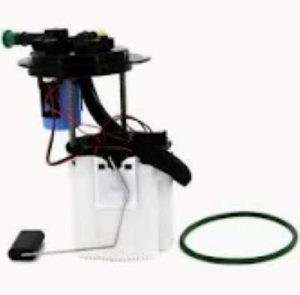Before you describe yourself, fix a noisy fuel pump by looking for the source of the noise. One reason a fuel pump might become loud is with the car off and the actual fuel level being too low. Fuel in a tank has a cooling and lubricating effect on the pump, so when the programs are empty it can lead to an overheated or over worn pump which means louder noise. One of the easiest things you can do is try and maintain a quarter tank of gas in your vehicle as to prevent this kind of strain on your car. A 2020 report by AAA said keeping fuel levels up helped prevent fuel pump overheating and could extend its life by up to 15%.
Another possibility for fuel pump noise is contaminated fuel. Dirt, debris or water in the fuel can clog the filter which makes it a lot harder for your pump to push gas through the system. Replacing the fuel filter regularly, usually every 30-40K miles may fix this problem as well, allowing the pump to work more easily. Clogged fuel filters are also troublesome in causing the pump to work harder (which can translate into more noise and fewer performance on more recent imported cars, as noted by Consumer Reports for 2021).
One of the simpler methods to reduce fuel pump noise is to check for interruptions or leaks in the fuel lines. The fuel pump works harder when the fuel line is pinched or clogged, it reduces fuel flow. Sometimes cleaning or changing out damaged fuel lines is all it takes, and you can breathe in the sweet sound of silence once again.
Noise from a broken or improperly installed Fuel Pump Cause: The pump is old or worn out and /or incorrectly arranged, which may lead to immoderate vibration, subsequently making a whining/buzzing noise. The cause of low fuel pressure can be fixed by replacing an aging fuel pump or confirming that a new one was properly seated at installation. Sound-dampening material can be applied around the pump to reduce additional noise, particularly for competitive or aftermarket pumps. The average national cost of replacing a fuel pump for common vehicles ranges between $400-$600 (according to RepairPal 2021).

Also, do check the fuel pump mounts. If the mounts are failing or loose, they will create a feedback loop of resistance that makes the pump vibrate more and thereby get noisier. Simple modifications such as tightening or changing out the mounts might help improve vibrations and reduce noise.
Tesla CEO Elon Musk made this point very clear: "Efficiency is key to longevity in engineering." The fuel pump, holding a place in the heart of your combustion process chain, is no exception. This ensures that the pump is running efficiently, quietly and not straining to operate under the influence of such things as low fuel levels or clogged filters.
To sum up this article about how to fix a noisy fuel pump, there are four main things you should do: start by addressing low fuel level, replace clogged fuel filters, follow it up with inspecting the condition of your replacements, and confirm that the install of the pump is totally correct. Simple fact is that this noise may not be harmful but frequent fixes can avoid it from getting a indication of one thing worse. Visit Fuel Pump for more information, or to locate a new fuel pump that fits your specific automobile model.
